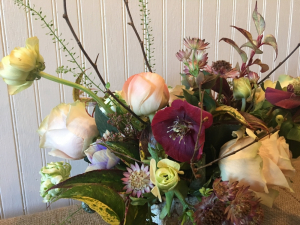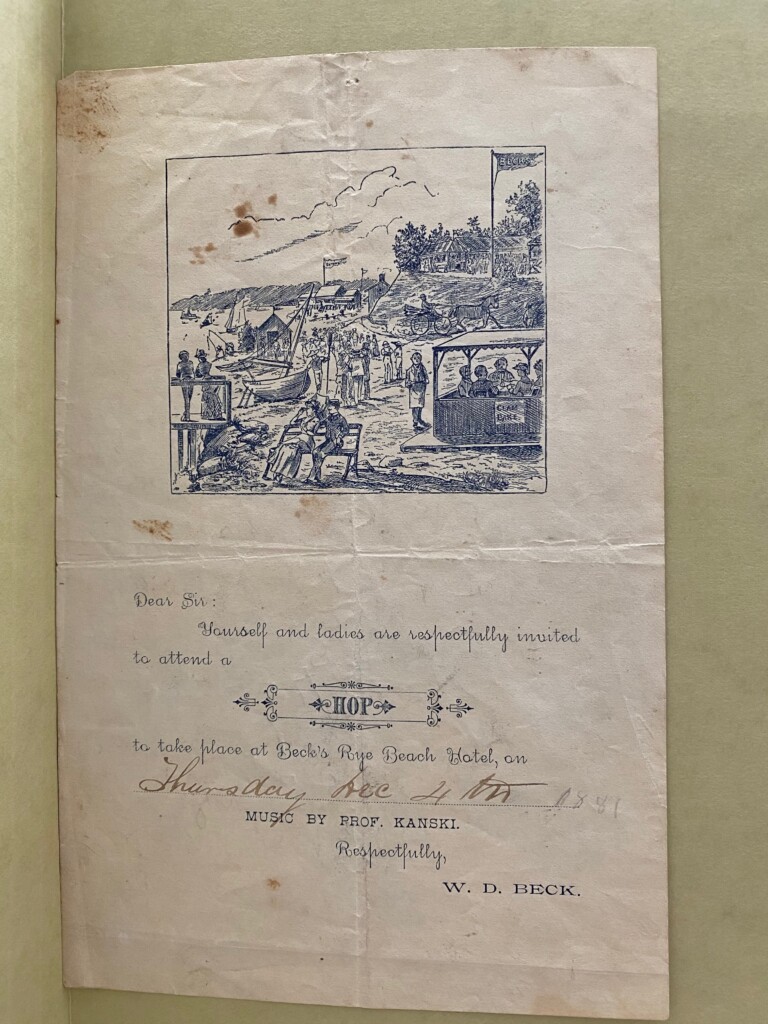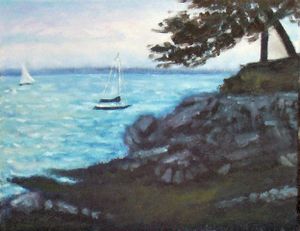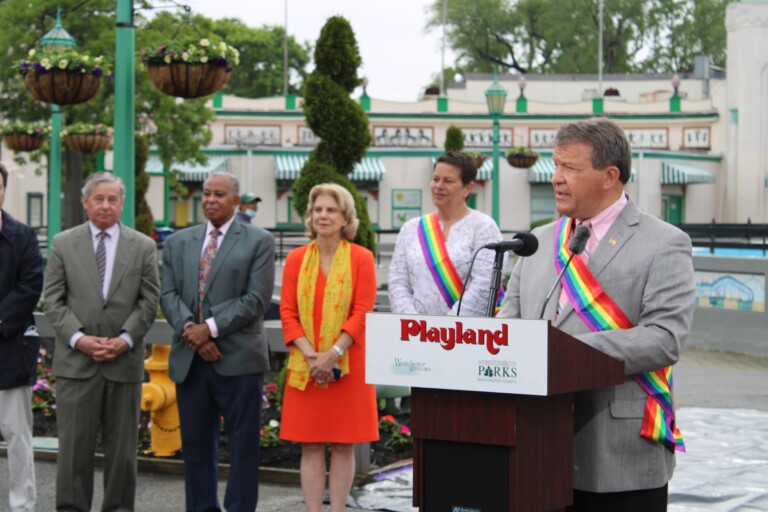Memorial Day Speeches: John M. Kingery Memorial Essay Contest winner Madeline Kilroy
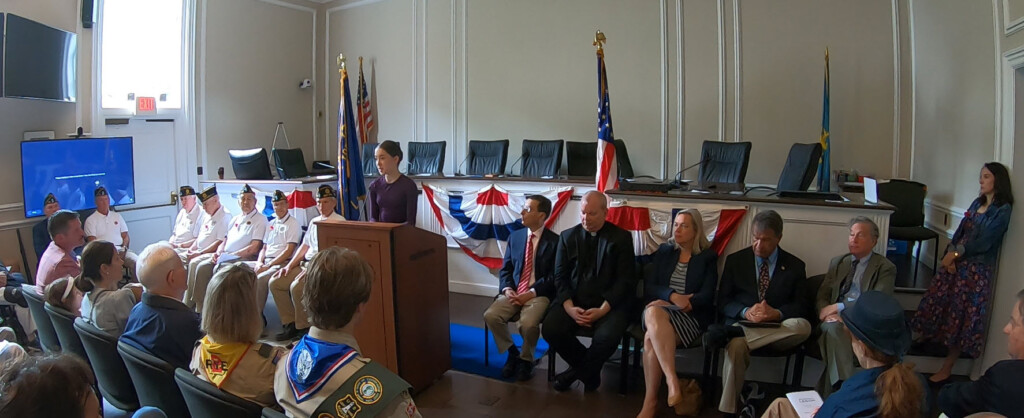
As a follow-on to MyRye.com’s reporting on Memorial Day, we have reached out to a handful of the day’s speakers for a copy of their remarks to share with our readers.
Each year, the John M. Kingery Memorial Essay Contest awards a $1,000 prize for a student written essay on what Memorial Day means. The award is named after World War II bomber pilot John Kingery whose son Jim runs Rye Subaru. The winner was Rye High School student Madeline Kilroy.
She spoke about her family – one side Korean immigrants who arrived in 1970, the other side of the family in New England for the duration including a relative that fought as one of the Minutemen versus the British at Lexington, Massachusetts during the Revolutionary War.
Watch the video and read the remarks below:
What Memorial Day Means to Me by Madeline Kilroy
In 1970, my Halmeoni and Hal-abeoji (Korean for Grandma and Grandpa), immigrated from South Korea to the US, where they raised my mother and her siblings. In the face of uncertainty in this new country, my grandparents fostered a family with what they knew best—Korean values and traditions. Values and traditions that my mother would pass to me, such as Jesa, ceremonies where we bow to, and present offerings to our late relatives and ancestors. Korean culture emphasizes honoring those who came before you, as the challenges and hardships they overcame are why you are here today.
While Jesa is not customary for most Americans, I’d argue that we are just as adamant in our reverence for those who have passed, especially those in the Armed Forces, given that we celebrate many military-centered holidays, such as Memorial Day. Being Korean American has given me a unique perspective on how I approach remembering those who gave their lives for the safety and freedom of this country, especially those within the other side of my family.
My dad’s family has lived in New England for centuries, and my ancestors have fought in almost every major conflict involving the US, such as my great-great-great-great-great-great-great grandfather, Ebenezer Hinds Jr, who joined his fellow minute men on April 15th, 1775 to fight the British at Lexington, Massachusetts, helping to bring the first major American victory of the Revolutionary War. Or, his great-grandson Winthrop Tisdale Hinds was drafted in 1863 to fight with the Union during the American Civil War, the war that would lead to the creation of Memorial Day. Or his grandson, Ralph Winthrop Hinds, who at just 25, enlisted in World War I. He would later marry and have children, one of whom being Beverly L Hinds, my great-grandmother, whom I knew as Nanny. Nanny’s husband,
Andrew J Fisher, was part of the navy during World War II. He served as a radioman, right on the bridge of two ships that nearly sunk during battle, before returning from the war, meeting Nanny, and having two daughters Bonnie and Andy, the latter of which being my Grandy. Grandy’s cousin Bill would be part of the Air Force, stationed at Incheon during the Korean War. Unbeknownst to him, my Halmeoni was just 17 miles away in Seoul, having escaped from Pyeongyang, North Korea on foot, carrying a jar of fermented bean paste, at only 5 years old.
Without the soldiers who fought in the American Revolution, the Civil War, and both World Wars, America wouldn’t be the country it is today–a country that grants freedom, liberty, and justice for all. And without the efforts of American soldiers in the Korean War, South Korea might’ve been absorbed into North Korea, and my Halmeoni and Hal-abeoji would have never come to the US, or had a free, democratic South Korea to move back to in 1989. Without my ancestors who fought for America, I wouldn’t have inherited the culture that taught me to pay respects to my ancestors.
Memorial Day is considered the unofficial beginning of summer. I spent many summers at my paternal grandparents‘ house in Western Massachusetts, a house built when Massachusetts was but a British colony. Driving home to New York, we passed highway signs highlighting the exit ramp to Lexington and Concord, the very same towns where my great-great-great-great-great-great-great grandfather fought for the foundation of this country.
The summers I wasn’t in America, my family and I flew into Korea, landing at Incheon Airport, before visiting my grandparents’ house in Seoul. Despite being on opposite sides of the planet, both houses stood as a reminder of the US soldiers in my lineage, past and present, who put their lives on the line for both countries. And for them, I am eternally grateful.

